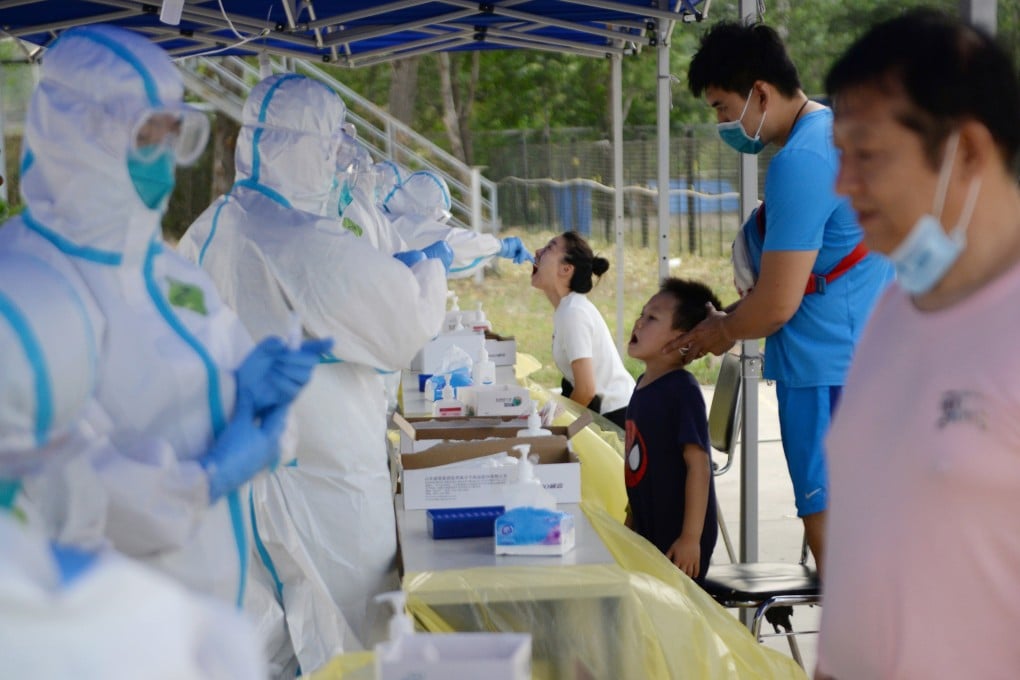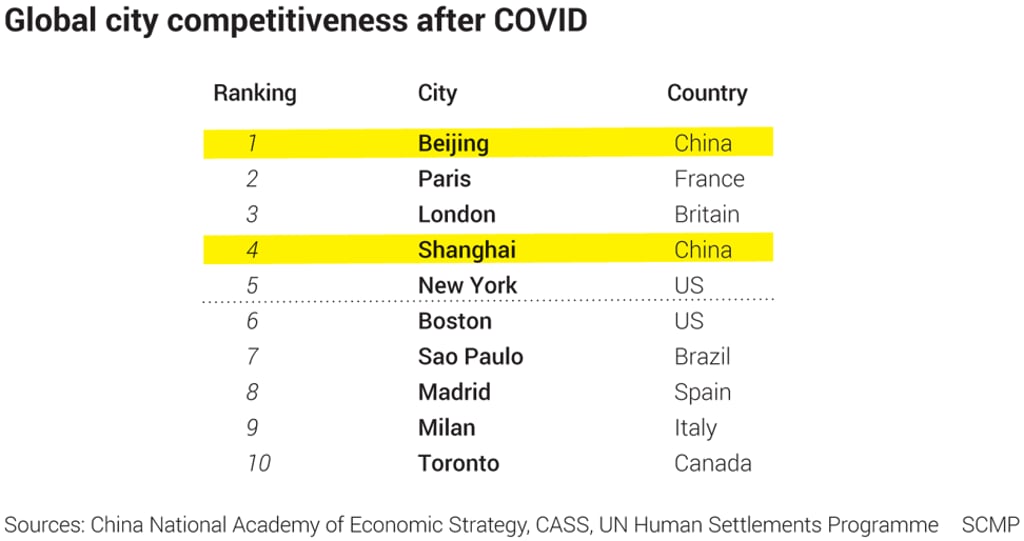Beijing rises to world’s most competitive city as Covid-19 saps economies, curtails travel and upends connectivity, study finds
- Beijing is the world’s most competitive urban centre in the age of Covid-19, followed by London, Shanghai, New York, Boston, Sao Paulo, Madrid, Milan and Toronto, according to the sixth annual ranking by a researcher
- Ranked according to pre-pandemic measurements, New York remained the world’s most competitive urban centre for the fourth consecutive year, followed by Singapore and Tokyo

Beijing is the world’s most competitive city in the era of Covid-19, as the Chinese capital’s successful containment of the infectious disease amid a worldwide pandemic elevated it to the top of an annual ranking amid curtailed travelling and upended economic activities, according to the study’s author.
Beijing was ranked highest because of the number of co-authored scientific research papers published, according to the 2020-2021 Global Urban Competitiveness Report by the Chinese Academy of Social Sciences (CASS) and the United Nations Human Settlements Programme. Paris was in second place, followed by London, Shanghai, New York, Boston, Sao Paulo, Madrid, Milan and Toronto to round out the top 10.
The study, in its sixth annual instalment, canvassed 1,006 of the biggest urban centres on Earth – each with at least 500,000 residents – to reflect their industrial base and their connectedness with the global division of labour. The more indispensable a city is to its worldwide network, the higher is its rank.
“The impact of the pandemic on air travel will last for many years, and this poses a serious threat to cities’ global connectivity,” Ni said. “Online scientific research activities such as online conferences have strengthened the connections between researchers, and the number of co-authored scientific research papers published has increased significantly, which means connectivity of scientific researchers will become an important driving force for global connectivity.”
